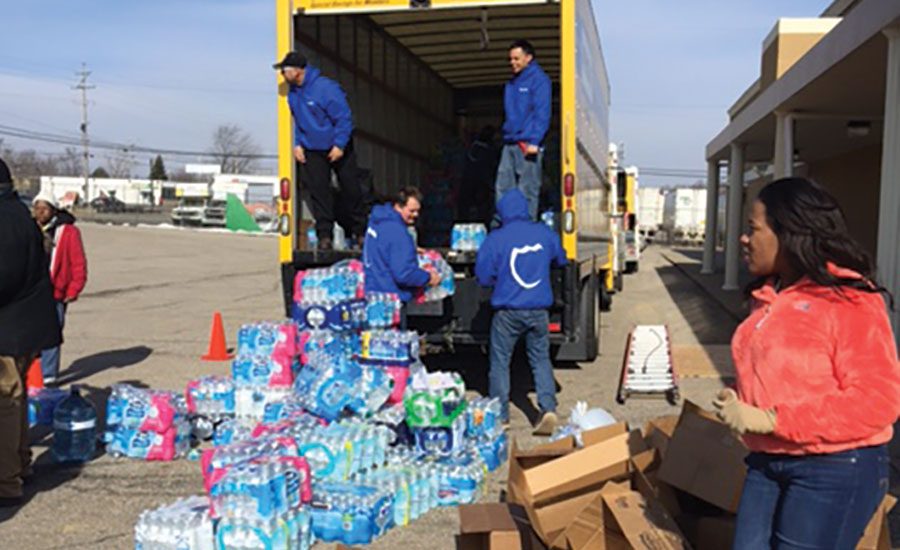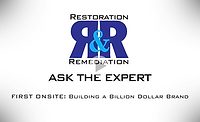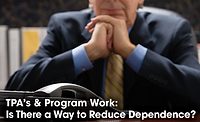Over the years, our team has responded to thousands of disasters caused by floods, fires, tornadoes, hurricanes, and even insects. These disasters shut down businesses for weeks, sometimes months. Workers are displaced. Families are affected. Within hours of the disaster, we arrive on scene, survey the damage, restore power and water if possible, and begin to plan remediation for the damaged areas. After the job is done, our greatest satisfaction is knowing we helped return a business to pre-loss condition and witness employees return to work.
But the truth is, while we help put peoples’ lives back together, it is still a business exchange. As we leave a job site and drive through nearby neighborhoods, we see the aftermath of victims in the surrounding community camping out on their front lawns after four feet of water flooded the town. Families in some of the poorest neighborhoods are essentially evicted by mold and falling sheetrock. That imagery stays with you. You never get used to seeing the reality of what a natural disaster can do. Using that heartbreak as motivation, I became fixated on finding ways to help.
In addition to the local community efforts we have proudly supported over the years, I still wanted to do more. This desire eventually led me to Mercy Housing, which provides housing for low-income families, seniors and people with special needs. I was moved by their mission. Not only are they the largest low-income housing organization in the nation focused on helping the less fortunate find a place to live, they also take their mission a step further by providing financial, health and employment services to help people get back on their feet. So I joined the Mountain Plains Board of Advisors for Mercy Housing and made it a mission of Interstate Restoration to give back.
When I shared the news with employees, they jumped in wholeheartedly. Our employees have since helped raise tens of thousands of dollars for Mercy Housing and other non-profit organizations at trade shows, golf tournaments and through in-kind labor.
I found that by creating a “giving mission” within the company, it boosted employee morale and built a greater trust in the leadership team and the company as a whole. One of our core values is to always “do the right thing” and we believe giving back is an integral part of that mission. It generates a sense of pride among employees who enjoy going beyond the work they are hired to do. It certainly has provided me with a greater sense of fulfillment.
Our willingness to help out has also been infectious. When employees see the company assist one charitable organization, they volunteer elsewhere. For instance, our Interstate Hawaii Team helped paint the walls of a homeless shelter on Oahu. Our Chicago and Detroit employees responded to the water crisis in Flint, Mich., by hauling thousands of bottles of water to a family shelter in Flint. They even drove through neighborhoods handing bottled water to residents and their children along the streets. Our Denver team joined forces with a local fire department to build a wheelchair ramp at the home of a 12-year-old boy with Duchenne Muscular Dystrophy. We have even integrated charitable contributions into our conference branding at large events.
Finding a way for businesses like ours to go above and beyond to support the communities that we work in is essential for many reasons. Philanthropy, for example, can also improve connections to the community and help raise brand awareness through traditional and social media. But most importantly, it’s the right thing to do and fulfills our human need to make the world a better place.





Report Abusive Comment